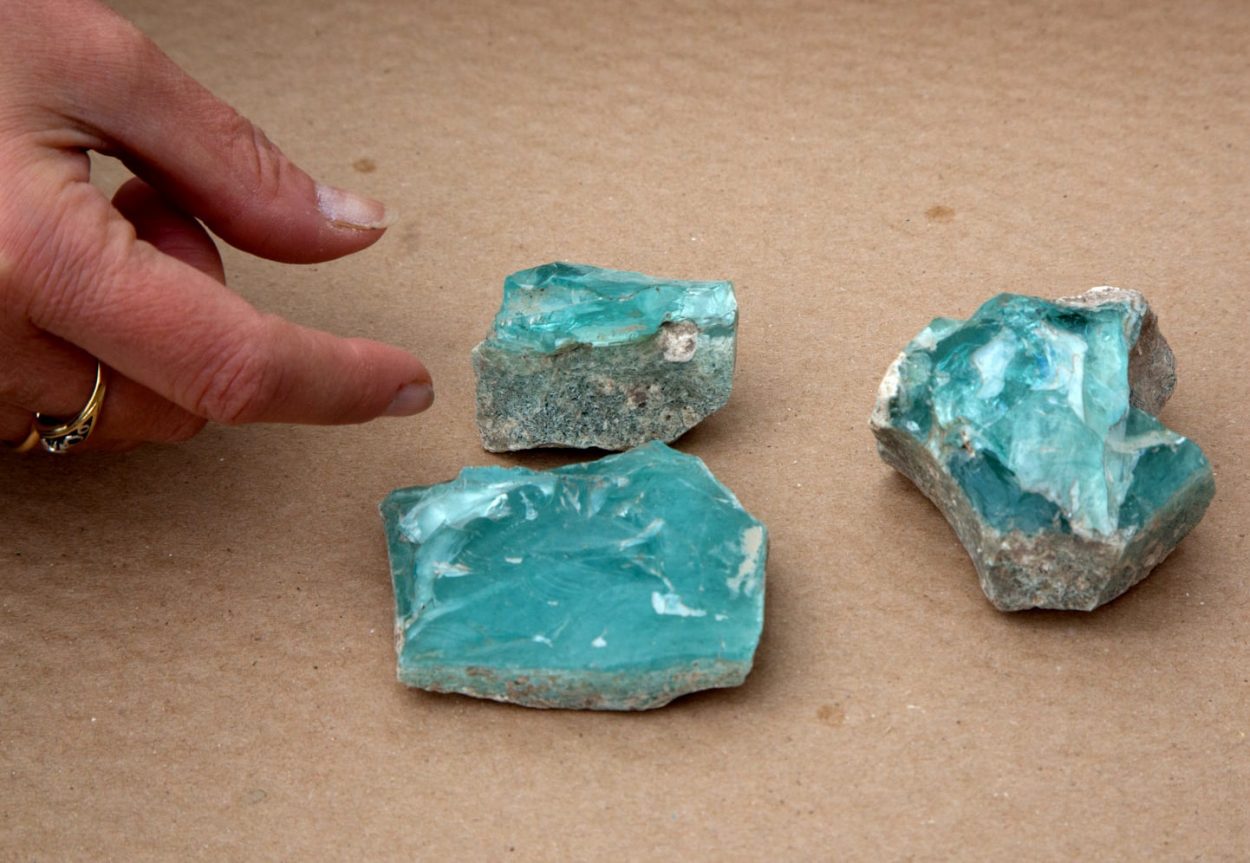Archaeologists from the Israel Antiquities Authority (IAA) have discovered ancient glassworks from the Late Roman period in the Jezreel Valley, Israel.
IAA excavations were conducted as part of the Jezreel Valley Railway Project, where archaeologists uncovered the remains of ancient glass kilns which produced commercial quantities of raw glass around 1600 years ago.
During the Roman period, glass was valued for its transparency and beauty, used in public buildings in the form of windows, mosaics and light fixtures, in addition to bowls and drinking vessels in most Roman households. Consequently, the demand for glass required industrialised centres to meet consumer demand, with the glassworks in the Jezreel Valley being one such centre.
Researchers discovered a series of kilns consisting of firebox compartments where kindling was burnt at high temperatures, and a chamber for melting raw materials (beach sand and salt) at temperatures of 1200 degrees Celsius.
Yael Gorin-Rosen, head curator of the Glass Department in the Israel Antiquities Authority said: “This is a very important discovery with implications regarding the history of the glass industry both in Israel and in the entire ancient world. From historical sources dating to the Roman period, we know that the ‘Akko valley was renowned for its excellent quality sand, which was highly suitable for the manufacture of glass.”
A chemical analysis on glass vessels from this period has shown that many sites in Europe and the Mediterranean basin sourced glass products from this region that supplied the wider Roman world.
Header Image Credit : Israel Antiquities Authority





